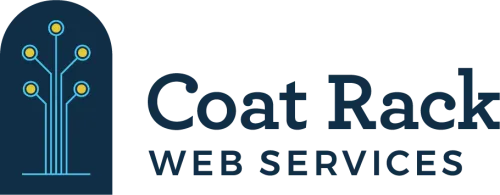Nonprofits are here to help. They craft missions to benefit people, animals, and the environment. They foster community among donors, granters and clients, and measure their success by the impact on those they serve.
Unlike for-profit organizations, the measuring of impact can be a complex affair. As a result, the systems necessary to conduct business and measure impact can be complicated, custom, and ever-changing.
Integrating disparate applications is not just a matter of convenience but a necessity to enhance organizational efficiency, expand outreach, and tailor solutions to a nonprofit's specific needs. Enterprise Application Integration (EAI), which aligns applications across an organization, significantly boosts these capabilities by facilitating seamless data flow across systems and platforms. This optimizes the ability of scarce resources to operate as efficiently and accurately as possible.
Ready to transform your Enterprise Application Integration processes? Book a free consultation with us today.
Enterprise Application Integration for Non-Profits
Nonprofits operate with limited resources and must maximize every operational tool and system at their disposal. Enterprise Application Integration involves linking diverse systems and applications for seamless collaboration.
Enterprise Application Integration benefits include:
Centralized Data Management: Integrations consolidate data from donor databases, financial management tools, client onboarding and outreach systems, volunteer management platforms, and more. This centralization ensures accuracy and timeliness, facilitating informed decision-making and resource allocation.
Unified Reporting and Analytics: With integrated systems, nonprofits can generate comprehensive reports and perform advanced analytics, empowering nonprofits to track their performance, measure impact and identify areas for improvement -- across the organization in a unified manner.
Streamlined Processes: By connecting various applications, nonprofits can automate routine tasks and workflows, thereby providing essential resource optimization enabling staff to focus on strategic priorities rather than administrative burdens.
Focus on Data Security: Prioritizing data security ensures compliance with regulations and safeguards sensitive information across integrated applications. Specific focus is necessary around how data is protected both in transit and at rest.
Enhancing Non-Profit Outreach with ECommerce Tools
Ecommerce tools are invaluable for nonprofits seeking to expand their reach and increase fundraising efforts. Integrating ecommerce tools with existing systems can significantly enhance outreach capabilities and donor engagement.
Seamless Donation Processing: Integrating ecommerce tools with a donation management system ensures seamless processing and accurate recording of donations supporting various payment methods, and enhancing donor convenience, making it easier for supporters to contribute, or clients to purchase needed services.
Enhanced Online Presence: Ecommerce tools include features for creating and managing online stores, enabling nonprofits to sell merchandise, event tickets, or other items, generating revenue streams while raising awareness for their cause.
Recurring Payments: Nonprofits that manage donors or members, commonly require recurring payment facilities for ongoing contributions and membership fees, enhancing donor retention and financial stability. Today's ecommerce tools provide all of this functionality, securely in many currencies.
Data-Driven Insights: By integrating ecommerce tools with analytics platforms, nonprofits can gain insights into donor behaviors, preferences, and trends. This data can inform targeted marketing campaigns, personalized outreach, and strategies to engage new supporters.
Building Custom Applications Based on Your Nonprofit Needs
While off-the-shelf solutions offer general functionality, custom applications can address specific challenges unique to non-profit organizations. Developing custom applications in so many cases can ensure alignment with organizational workflows and improve your overall effectiveness.
Customized Functionality: Nonprofits often have unique processes and requirements that standard applications may not fully address. Custom applications can be designed to fit these specific needs. In many cases, existing off-the-shelf tools are easier to custom build than attempt to retrofit into requirements that don't fit them.
Customized Integrations: Custom applications can be built with current and future integrations in mind. Many off-the-shelf tools are not built this way. They are built to perform the one function they perform well, without consideration to the overall environment or needs. Ignoring this aspect can greatly reduce the effectiveness of existing and future technology products.
Scalability and Flexibility: As nonprofits grow and evolve, their technology needs may change. Custom applications can be designed with scalability in mind, evolving alongside the organizations growth. This flexibility ensures that technology investments remain relevant and useful over time.
Enhanced User Experience: Custom solutions can be tailored to the specific workflows and preferences of an organization's staff and stakeholders. This personalization can lead to higher adoption rates, increased efficiency, and a better overall user experience.
Resource Optimization Strategies for Non-Profit Efficiency
Resource optimization strategies are specifically geared towards streamlining operations, reducing errors, and freeing up resources to focus on strategic initiatives.
There are strategies that can be followed to ensure that the Enterprise Application Integration projects you undertake will be successful in meeting these resource optimization goals.
Assess Resource Optimization Needs: Begin by assessing the workflows and processes key employees utilize on a daily or weekly basis. Prioritize workflows for improvement that require your resources to enter data manually, manage operational processes with manual steps, and identify cross-department inefficiencies in data transfer. Are resources having to ask key individuals for data via email? Phone?
Assess Integrations: Assess the current technology landscape and identify integration opportunities that align with strategic objectives. Ensure ongoing governance and evaluation for continued effectiveness.
Choose the Right Tools and Partners: Selecting the right integration tools and technology partners is crucial. Look for solutions that are compatible with existing systems, consider resource optimization needs, and offer robust support and customization options. Partner with experienced technology consultants to maximize integration success.
Provide Training and Support: Successful adoption requires staff to be familiar with new systems and processes. Invest in training and support to help your staff adapt to changes and maximize the benefits of integrated solutions.
For nonprofits aiming to maximize their impact, enhance operational efficiency, implement ecommerce capabilities, or ensure best-in-class resource optimization, investing in Enterprise Application Integration is essential. At Coat Rack, we specialize in considering your entire technical environment when making recommendations to you and do not approach your projects with blindfolds on to the bigger picture. We remain focused on your overall mission, your impact needs, and your Enterprise Application Integration needs, at all times.
Ready to transform your technology solutions? Click the button below to schedule a free consultation with us today.
Book A Free Consult With Us

